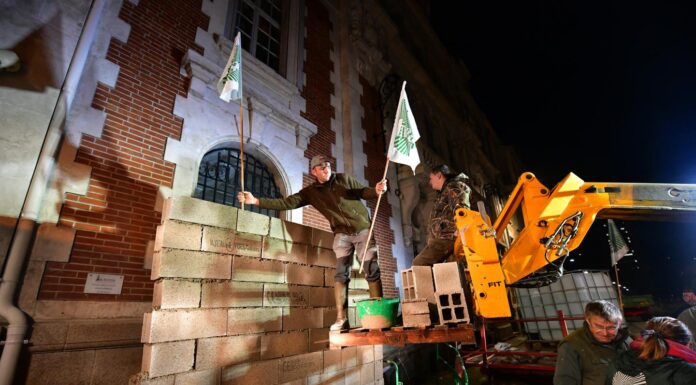The role of TikTok in Romania’s presidential elections has become a topic of controversy after the sudden victory of Călin Georgescu.
The European Commission has ordered TikTok to retain all data related to electoral risks in Romania, amid growing fears the platform has been exploited to favour the campaign of Călin Georgescu and alter the outcome of the presidential race.
Georgescu, an independent candidate who has embraced Eurosceptic, Russian-friendly, ultra-nationalist, and pseudo-scientific views, will face off Elena Lasconi, a pro-European liberal, in the second round scheduled for this Sunday.
The Commission’s “retention order,” announced on Thursday afternoon, is based on the Digital Services Act (DSA), the European Union’s new regulation to combat illegal content and disinformation in the online world.
It compels TikTok to “freeze and preserve” all internal documents and information, including its system of recommendations and risks associated with intentional manipulation and monetised promotion of political content, in the context of elections.
The order will apply from 24 November 2024 until 31 March 2025 and cover upcoming elections in Romania, Croatia, Austria, Greece and Germany.
The data retained by the order could help the Commission open a formal investigation into TikTok’s role in the Romanian elections. The probe has not yet been announced but a request for information, the previous stage, was sent last week.
“We have a legislative tool instrument at our disposal to make sure that very large platforms, including TikTok, comply with their obligations and assess and mitigate systemic risks relating to the service and how their service could potentially be misused, including in the context of elections,” a Commission spokesperson said.
The spokesperson added the actions launched under the DSA were not meant to favour one candidate over another but simply meant to ensure compliance with EU rules.
The development comes one day after Romanian President Klaus Iohannis agreed to release a series of classified documents by the intelligence services that suggested Georgescu’s sudden rise to fame was “not a natural outcome” but the result of artificially coordinated action to manipulate and exploit TikTok’s algorithm.
The campaign was likely orchestrated by a “state actor,” the documents said. Although Russia is not mentioned as the culprit, the agencies detected similarities between an online campaign in Romania and a previous one that Moscow had conducted in Ukraine.
According to the Romanian Intelligence Service (SRI), a previously hidden network, mainly operating on TikTok, which had been largely dormant since its creation in 2016, became very active in the two weeks before the first round of the elections. The network’s operators, recruited and coordinated through a channel on the messaging platform Telegram, used methods typical of a state actor’s “mode of operation.”
The SRI also reported that nearly one million euros were spent in the campaign by an individual supporting Georgescu’s candidacy, with up to €950 paid for a repost. TikTok itself admitted to receiving €362,500 from this person last week, the documents showed.
The revelations sent shockwaves through Romania and beyond, fuelling fears the Eastern European country had fallen victim to foreign interference.
The Commission is analysing the documents declassified by Romania and will convene on Friday a roundtable of DSA coordinators to discuss the findings.
TikTok did not reply to a request for comment.
On Tuesday, representatives of the company faced a grilling in the European Parliament during which they defended TikTok’s actions in Romania. The executives said the platform had taken down several networks aimed at meddling in the elections, including one with 1,781 followers that supported Georgescu.
MEPs left the meeting visibly dissatisfied, complaining many of their questions had been unanswered. Valérie Hayer, the leader of Renew Europe, asked for Shou Zi Chew, the CEO of TikTok, to be summoned before the hemicycle.
“What has happened in Romania is another warning bell for us: disinformation can happen all over Europe with very harmful consequences,” she wrote.
Hayer said that should Brussels determine TkTok violated the DSA, the EU “should follow with stringent sanctions, without excluding a suspension or a full ban.”
TikTok, which is Chinese-owned, has been a recurring target of scrutiny in Western countries over the spread of misinformation and propaganda through its powerful algorithm, which keeps users hooked to an endless stream of recommended content.













